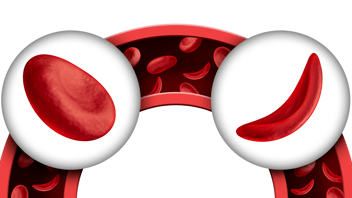SIADH Syndrome of Inappropriate Antidiuretic Hormone Secretion: NCLEX Review for Nursing Students
%20nclex%20review%20nursing%20students.png)
Understanding SIADH (Syndrome of Inappropriate Antidiuretic Hormone)
Understanding the Syndrome of Inappropriate Antidiuretic Hormone (SIADH) is important for nursing students preparing for the NCLEX exam due to several reasons:
Common Disorder: SIADH is a relatively common disorder that can occur in various clinical conditions. Nurses are likely to encounter patients with SIADH, making knowledge about its pathophysiology, assessment, and management crucial..png?width=1200&height=630&name=nclex%20review%20for%20angina%20(2).png)
Serious Complications: SIADH can lead to severe complications such as hyponatremia, cerebral edema, and altered neurological status. Nurses should understand the potential risks associated with this disorder and how to prevent and manage them.
Assessment Skills: Nurses need to be skilled in recognizing the signs and symptoms of SIADH, including fluid retention, hyponatremia, and neurological changes.
Fluid and Electrolyte Imbalance: SIADH results in water retention and dilutional hyponatremia. Nurses should understand the implications of these imbalances and how to manage them.
Diagnostic Tests: Nurses should be familiar with the diagnostic tests used to confirm SIADH, such as serum sodium levels, serum osmolality, and urine osmolality.
Fluid Restriction: Nurses play a role in implementing and monitoring fluid restriction to help correct hyponatremia and manage fluid balance.
Medication Management: Nurses should understand the medications used to manage SIADH, such as vasopressin receptor antagonists, and their administration.
Neurological Monitoring: SIADH can lead to altered neurological status due to hyponatremia. Nurses should perform frequent neurological assessments to detect changes promptly.
Patient Education: Nurses educate patients about SIADH, its causes, potential complications, and the importance of adhering to fluid restriction and treatment plans.
Emergency Management: Nurses should be prepared to manage complications such as seizures and cerebral edema related to severe hyponatremia.
NCLEX Preparation: The NCLEX exam may include questions related to SIADH, its pathophysiology, assessment, interventions, and patient education. A strong understanding of this topic is essential for answering these questions accurately.
Overall, understanding Syndrome of Inappropriate Antidiuretic Hormone equips nursing students to provide safe, patient-centered care to individuals affected by this disorder. It ensures that nursing students are prepared to address the unique challenges and needs of patients with SIADH and contribute to positive patient outcomes.
Overview of SIADH (Syndrome of Inappropriate Antidiuretic Hormone)
1. Excess secretion of ADH from the posterior pituitary
2. Hyponatremia (excess water diluting sodium)
3. Water intoxication
Assessment of SIADH (Syndrome of Inappropriate Antidiuretic Hormone)
1. Fluid Volume Excess→ Hypertension, JVD, Crackles
2. Hyponatremia → Altered LOC, coma, seizures
3. Concentrated Urine→ Decreased urine output, urine Specific Gravity > 1.036
4. Diluted blood circulation so decreased BUN,
decreased Hematocrit
Therapeutic Management for SIADH (Syndrome of Inappropriate Antidiuretic Hormone)
1. Frequent cardiac monitoring
2. Frequent neurological examination
3. Monitor I&O and fluid restriction
4. Daily weight
5. Sodium supplement
6. Medication→ Hypertonic saline, diuretics,
electrolyte replacement
.png?width=1200&height=630&name=nclex%20review%20for%20angina%20(2).png)
Nursing Case Study for SIADH (Syndrome of Inappropriate Antidiuretic Hormone)
Patient Profile:
Eleanor Williams, an 80-year-old woman, is admitted to the hospital with confusion, weakness, and nausea. Her family reports that she has been drinking large amounts of water and is experiencing increased urination.
Assessment:
Upon assessment, Eleanor appears disoriented and weak. Her blood pressure is within normal range, and she is tachycardic. She has edema in her extremities and her skin feels cool and clammy. Laboratory tests reveal hyponatremia and decreased serum osmolality.
Interventions:
1. Hydration Management:
Collaborate with the healthcare provider to determine an appropriate fluid restriction plan to correct hyponatremia and manage fluid balance.
2. Electrolyte Replacement:
Collaborate with the healthcare provider to replace sodium levels as needed to gradually correct hyponatremia.
3. Neurological Monitoring:
Perform frequent neurological assessments to monitor Eleanor's level of consciousness, cognitive function, and any changes in neurological status.
4. Medication Management:
Collaborate with the healthcare provider to determine the need for vasopressin receptor antagonists to counteract the effects of excessive antidiuretic hormone secretion.
5. Patient Education:
Educate Eleanor and her family about SIADH, its causes, the importance of fluid restriction, and the signs of complications.
6. Fall Prevention:
Implement fall precautions due to Eleanor's altered mental status and weakness, which can increase her risk of falls.
7. Emotional Support:
Provide emotional support to Eleanor and her family, addressing their concerns and helping them cope with the challenges of managing her condition.
8. Nutritional Support:
Collaborate with a registered dietitian to ensure Eleanor's nutritional needs are met while adhering to fluid restriction.
9. Follow-Up Care:
Schedule regular follow-up appointments to monitor Eleanor's sodium levels, fluid balance, and overall progress.
Outcome:
With comprehensive care and patient education, Eleanor's condition improves. Her sodium levels gradually normalize as she adheres to fluid restriction. Her confusion and weakness diminish, and she is educated about SIADH management and the importance of adhering to the treatment plan.
Free Download For SIADH Syndrome of Inappropriate Antidiuretic Hormone Secretion NCLEX Review
Are you looking for more must-know NCLEX review topics? Download our free eBook "NCLEX Flash Notes" as a valuable resource for nursing students. Encourage readers to download their free copy of the "NCLEX Flash Notes."
.png?width=1200&height=630&name=nclex%20review%20for%20angina%20(2).png)
You CAN Do This
Happy Nursing!




%20nclex%20prep.png?width=740&height=416&name=SIADH%20(syndrome%20of%20inappropriate%20antidiuretic%20hormone%20secretion)%20nclex%20prep.png)


%20nclex%20review%20nursing%20students.png?width=352&name=Hyperglycemic%20hyperosmolar%20nonketotic%20syndrome%20(HHNS)%20nclex%20review%20nursing%20students.png)